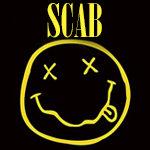
Don’t be a TWaT
I went to meet with the global CEO of an agency last week and came away feeling inspired by some of the things he said. We were sitting in one of his enormous buildings, once buzzing with creativity and possibility, but virtually empty because it was a Friday in a post COVID world. I’m told it would have been (a bit) busier if we had met on a Thursday.
There is a new acronym in the business world – TWaT – which stands for Tuesday, Wednesday and Thursday, the three days that have become most common for people to spend time in the office. Thursday nights are the new Friday nights because, as one senior agency persona told me, why would you want to have a hangover at the weekend when you could have it at home, on agency time?
TWaT has happened because of senior people, who generally live in larger homes and have longer commutes than people starting out in life. Long weekends are much more attractive to a generation who might have a holiday home to go to, than to a generation who might never afford a family home of their own.
This CEO described every day in the office as an opportunity to learn – even subconsciously. The ways in which he described how people learn on the job, watching colleagues, seeing how things are done, they all resonated with me.
The School’s learning model is very heavily influenced by Kolb’s learning cycle. Put simply, there are four key stages and each is important, because without any one stage in particular, it stops being a cycle and more like a triangle. Triangles don’t move forwards.
The four stages are as follows; Abstract Conceptualisation (Thinking), Active Experimentation (Doing), Concrete Experience (Feeling) and Reflective Observation (Watching).
He is thinking about making a very brave decision, telling thousands of people that they will need to return to their offices more than just a couple of days a week. He understands how important it is to protect cultures in which learning happens.
That was one of the things that inspired me in the meeting. The other was how he planned on telling his people his intentions.
Put simply, he sees his agencies as responsible for creating brilliant, effective work. Teams come together to make this happen, all the way from winning the right clients who have ambition to make famous campaigns, through to production. This clarity enabled him to ask one simple question: Will the best work get done by working together in one place, or remotely?
For some work, such as writing reports or reading spreadsheets, there are probably much better places to get work done than a buzzing and vibrant office.
But the big ideas mostly happen through collaboration, playing and challenging, competing and provoking, peacocking and praising. It’s hard (not impossible) to do this remotely. It’s harder, and nearly impossible when some of the team are face-to-face and some are in a small Teams window.
The future of work is almost certainly going to be different to how things were before COVID, and rightly so. At the School we believe that nothing yet replaces the power of bringing people from diverse backgrounds together to exchange ideas in shared spaces. We just don’t think it needs to be in the same space every day.
That’s why our students will be encouraged to work remotely on Wednesdays from January 2022. Instead of coming into school, we want our students to work from one of our sponsor agencies.
My hopes and prayers are that things continue to improve and we can all start returning to some level of normality by then, so that our students can soak up the culture and bathe in the energy of vibrant creative departments.
My message is this; don’t be a TWaT.











